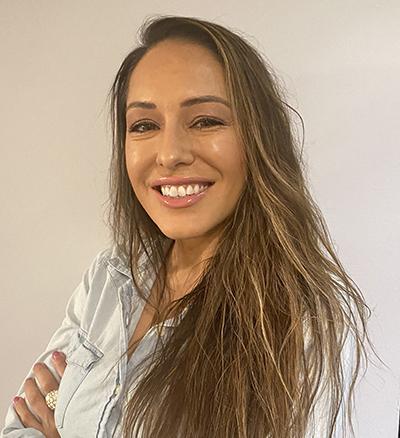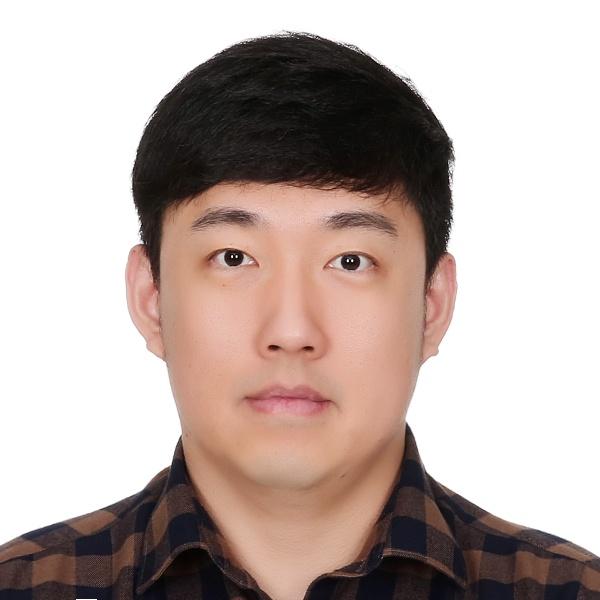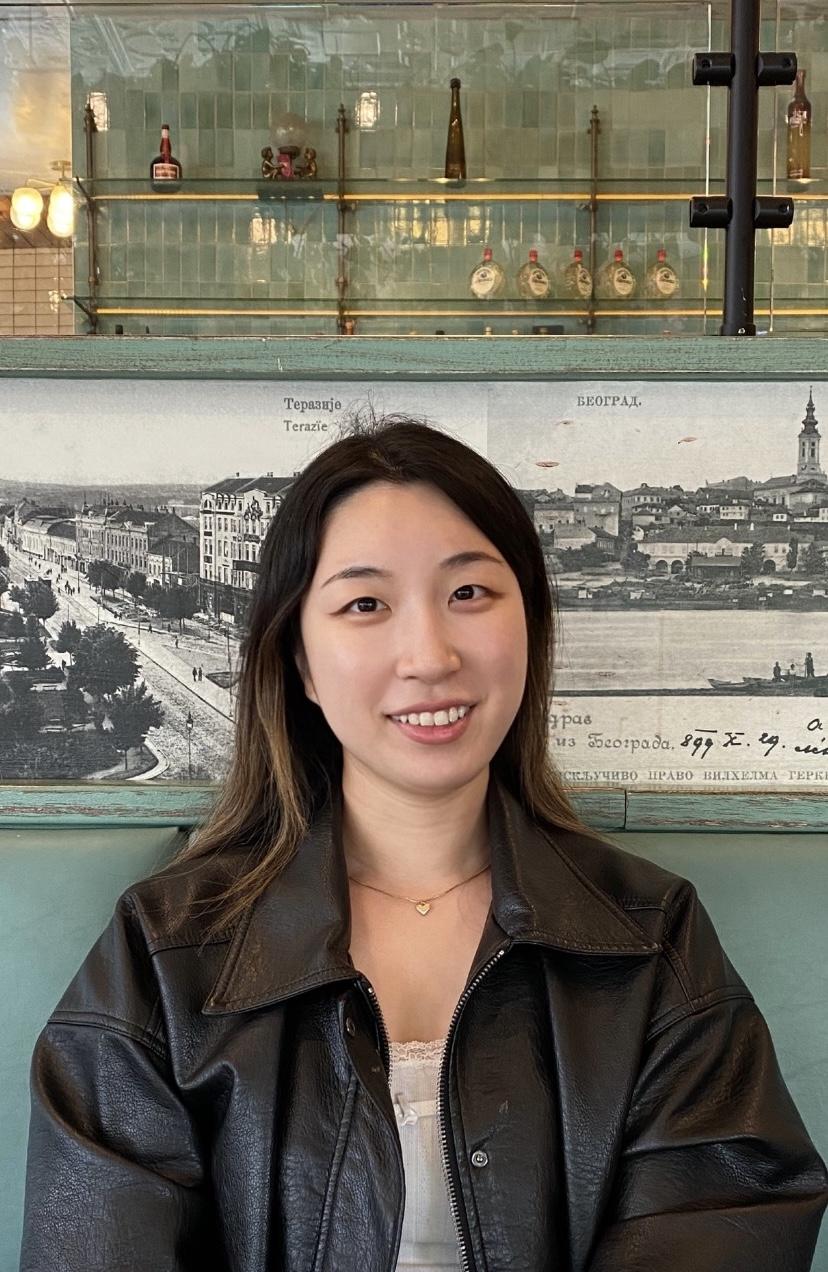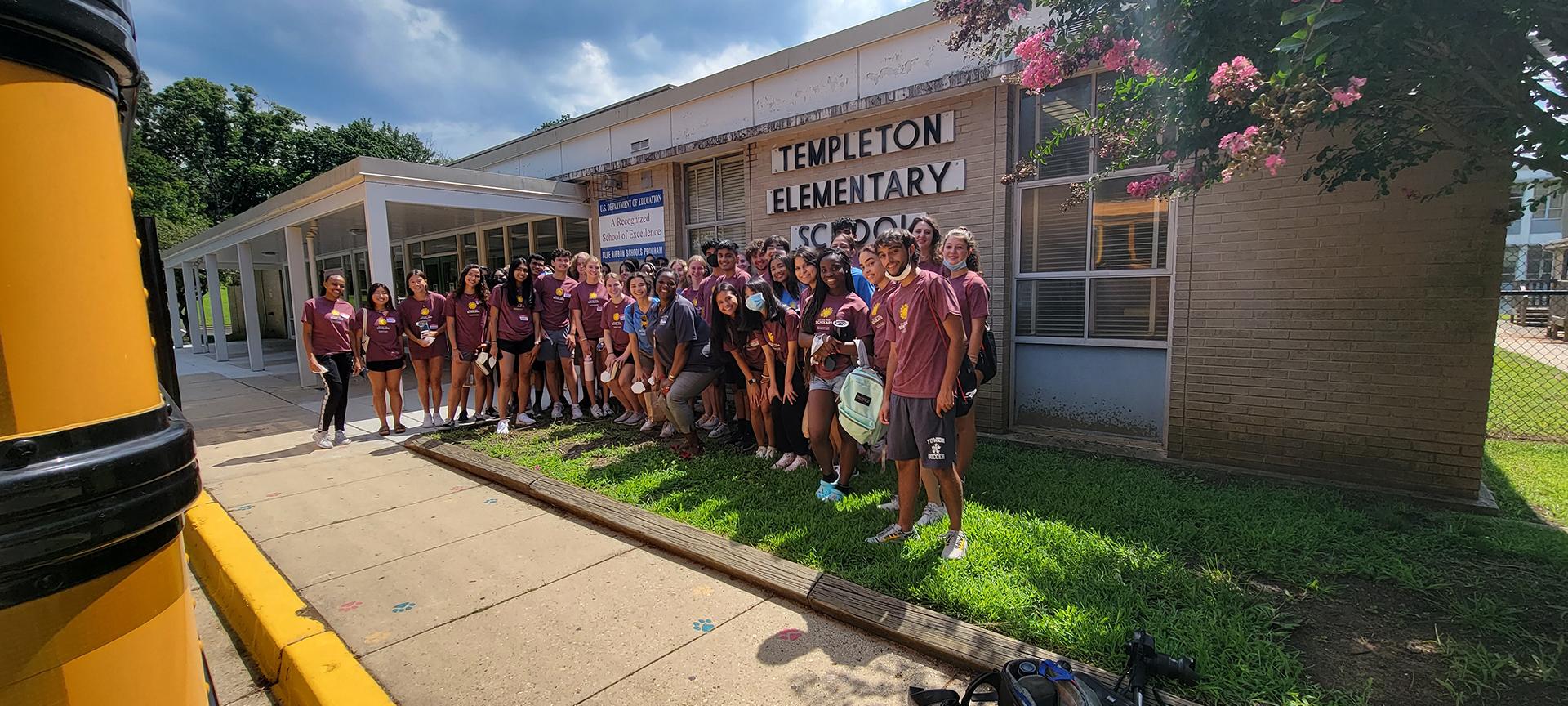International Studies
Investing in global citizenship for a more just world
Introduction
In our increasingly interconnected world, we no longer have the luxury of focusing only on our own country. What happens globally can affect us locally, while policies enacted locally can have implications for citizens halfway around the world. So how can we address the challenges of today’s world—from refugee displacement to gender inequality to rising authoritarianism—in a way that ensures a safe, sustainable and fair future for all?
International Studies (IS) explores global justice, including international development ethics, and the intricacies of how culture and society feed sociopolitical issues (and our understanding of them). Through discussions, in-class projects and guest speakers, students delve into the Sustainable Development Goals and learn what it means to be a citizen not just of one’s country but of the globe.
Students consider questions such as:
- What does a more just world look like and how can we get there?
- What does inclusive global citizenship mean for—and require of—communities, institutions and individuals?
- Can we justify extreme poverty amidst immense riches? Who is responsible for aiding the world’s poorest and most vulnerable?
IS offers an engaging and immersive opportunity for students who are interested in better understanding the world, including the forces that are shaping it. All majors and backgrounds are welcome. The program will be of particular interest to anyone interested in global justice, development ethics and human rights, but also international issues more broadly.
Colloquium and Lecture Topics
- Forced displacement (refugees and internally displaced persons)
- International development and human rights
- International Humanitarian Law and the “laws of war”
- Individual identity and intercultural dialogue
- Social action, diplomacy and the tools of change
I love International Studies because the topics we cover are ever-changing, relevant to current events and interdisciplinary. I find it amazing how we're able to cover and connect with many different topics like human geography, political science and public health!
Other Learning Opportunities
The IS experience is shaped in part through excursions and other active learning opportunities, both on and off campus. To broaden our understanding of what is covered in the classroom, we may visit embassies in Washington, DC, the Organization of American States, the Museum of the Americas, the Museum of the American Indian and our local Piscataway indigenous community, among others.
IS Scholars have enjoyed rewarding practicum opportunities, working with:
- Refugee Housing Solutions
- National Institute of Health
- Lakeland Stars Student Mentoring
- UMD Study Abroad
- Solutions in Hometown Connections
- Lutheran Social Services of the National Capital Area
- Maryland State Assembly
Students have walked Washington, DC’s, culturally diverse Heritage Trails to glean the international elements of the nation’s capital, participated in international negotiation simulations, presented on policy solutions to global challenges, and engaged in project-based learning in the classroom. Students also have the opportunity to engage in ongoing community-based learning by tutoring and mentoring refugees.
Curriculum Overview
Over the two-year program experience (four semesters), students will take a colloquium, practicum and select additional courses. Note that these Scholars courses are generally in addition to any courses students take to satisfy major requirements.
The following table represents a typical two-year curriculum, but individual schedules may vary. Details about courses and requirements can be found on the International Studies Citation Checklist.
| SEMESTER | COURSES | CREDITS |
|---|---|---|
| Semester 1 | CPSN 100: Colloquium I | 1 credit |
| Semester 2 | CPSN 101: Colloquium II (DVCC) | 1 credit |
| GVPT 200: International Political Relations (DSHS, DVUP;
or GVPT 241: The Study of Political Philosophy: Ancient and Modern (DSSP) |
3 credits 3 credits |
|
| Semester 3 | CPSN 200: Colloquium III | 1 credit |
| IS Sophomore Supporting Course | 3 credits | |
| Semester 4 | CPSN 230: Internship;
or CPSN 240: Service-Learning; or CPSN 250: Research; or CPSP 359S: Discovery Research (DSSP); or CPSP300: Intergroup Dialogue Facilitation (DSSP); or Study Abroad |
3 credits 3 credits 3 credits 3 credits 3 credits 3 credits |
Sponsoring College
Office Address
1117 Cumberland Hall
Office Phone
Faculty




News and Notes, Etc.
The Diamondback: First-ever Refugee Day creates community for refugees, May 2022
International Studies News
Longtime International Studies Director Concludes Scholars Tenure
A renowned scholar of political psychology, political violence and genocide, James Glass oversaw the International Studies Scholars program for 15 years. Dr. James Glass, director of the International Studies (IS) Scholars program for the past 15 years, has stepped down from his post, effective June 30. He was the longest-serving director in IS history.
Scholars Alumni Named to Prestigious Maryland Medallion Society
Several Scholars alumni were named to the Maryland Medallion Society during the 40th Annual University of Maryland Student Leadership Awards this month. The Medallion Society is a prestigious group consisting of 20 of the brightest student leaders at the university:
Scholars-helmed Teams Win $8,000 in Awards at 2021 Do Good Challenge
An entirely virtual environment for this year’s University of Maryland Do Good Challenge did not stop teams led by Scholars alums from earning significant monetary awards for their initiatives. The annual event features student teams that are working to make a difference competing for funding support. Of this year’s six finalist teams, three were helmed by those with ties to Scholars:
Scholars Citation Class of 2020 Recognized at Virtual Awards Ceremony
When the Scholars Citation Class of 2020 arrived at the University of Maryland in fall 2018, they were wide-eyed freshmen who took part in the usual rites of passage in Scholars: Service Day, excursions related to the annual theme, a kickball tournament the spring of their freshman year. And, while the 984 students’ second year in Scholars fell during the program’s 25th anniversary, “that year turned out to be anything but ordinary,” observes Scholars Executive Director Marilee Lindemann. In March of their second year, the UMD campus shut down in response to the COVID-19 pandemic and these students faced an abrupt pivot to remote learning.
Scholars Alum: Valentine's Special with Jeff Amoros and Corey Brewer
College Park Scholars Executive Director Marilee Lindemann often jokes to new students that some of them may end up meeting the love of their life in Scholars. The line usually gets an incredulous, slightly nervous laugh from students, but it’s true: Some of our Scholars students eventually go on to fall in love and marry. In this special Valentine’s edition of our alumni profiles, we offer a Q&A with one such couple. Jeff Amoros and Corey Brewer Alum of: BOTH: International Studies Year graduated: BOTH: 2009
Scholars Recognizes 2019 Citation, Founders Circle Award Winners
In 2017, College Park Scholars welcomed more than 800 freshmen to what would become its 24th citation class, the Scholars Class of 2019. All who successfully completed the requirements of their Scholars program received their official Scholars citation. But there were some that went above and beyond the expectations, leaving a lasting impact on the community. On Oct. 18, 2019, Scholars honored these extraordinary students at its annual Citation Awards. Those recognized included 24 juniors—two from each program—chosen by their program directors for outstanding achievement and 24 for outstanding citizenship.

